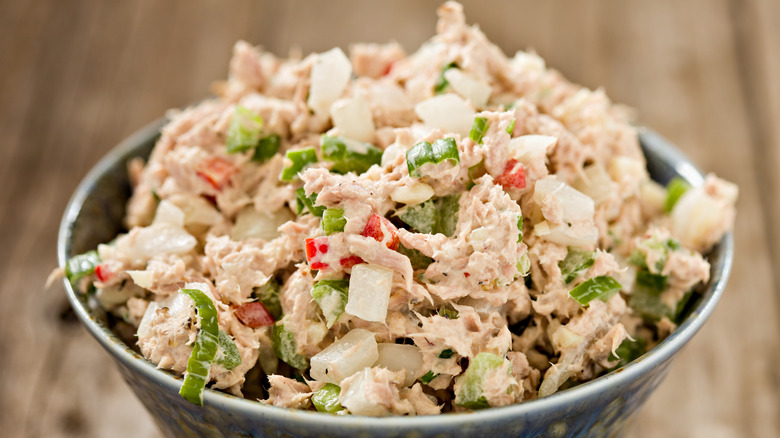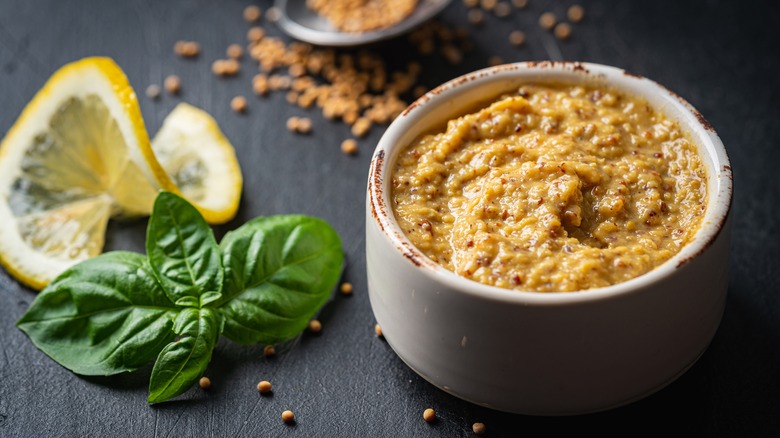Swap Dijon With Whole-Grain Mustard For A Zestier Tuna Salad
On its face, tuna salad may not seem all that nuanced but, in fact, it is an incredibly versatile dish. You can dress it up with the addition of some brightly colored veggies or you can keep it simple with the classic mayo-and-pickle style. It doesn't take much to zhuzh it up — simply adding mustard is an easy way to elevate your tuna salad game. If you haven't yet used mustard in your tuna salad recipe, you'll definitely want to start. You can't go wrong with a good Dijon, but for a more complex and delightful texture, swap Dijon for a heartier whole-grain mustard.
As with any fish dish, it's recommended that you incorporate a kind of brightness to bring out the milder flavors and cut any unwanted fishy aftertaste. Mustard and lemon juice are a perfect pair to do just that and, with the presence of whole-grain mustard seeds, you'll get a complimentary texture to the creaminess of the salad as well. Add a little shallot, pickle relish, and fresh parsley, and you've got yourself quite the sophisticated tuna salad.
Dijon vs. whole-grain mustard
Much like peppercorns, mustard seeds come in three colors – each with their own flavor profile and all existing on a spectrum of spice. Yellow mustard is the mildest and is made from white mustard seeds and turmeric ground with vinegar. Whole-grain and Dijon are typically the spiciest and most intense mustards. Both are made with brown mustard seeds, which have a heat level that sits between the mildness of white mustard seeds and the fragrant intensity of black mustard seeds. Occasionally, black mustard seeds are used alongside brown seeds in the whole-grain variety for extra spice and depth. Both Dijon and whole-grain mustard are made with wine in lieu of vinegar because wine is less acidic, which helps preserve the heat of the seeds.
There isn't much difference between Dijon and whole-grain mustard in terms of flavor, but the textural difference is significant. Dijon is great for adding to dressings because it will emulsify well, while whole-grain mustard won't and doesn't always add an appealing texture to every salad. However, because of the robustness of tuna salad's texture, whole-grain mustard is an excellent fit. If texture is as interesting to you as flavor, give your next batch of tuna salad a whole-grain mustard kick.

